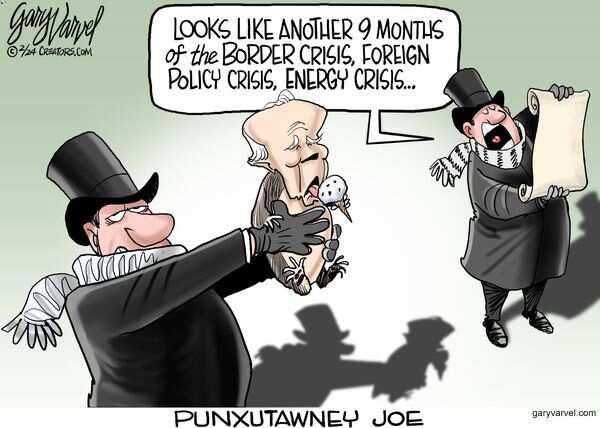
In a scenario reminiscent of a legal “Groundhog Day,” Hunter Biden has once again embarked on the seemingly impossible task of convincing a federal judge in Delaware to drop his felony gun charges. This latest effort, marked by a series of motions filed on Tuesday in the Delaware district court, appears to replicate many of his previous attempts, with only minor variations in his arguments.
In a reenactment of their prior strategies, Hunter Biden’s legal team continued to assert that a diversion agreement, which purportedly granted Biden sweeping immunity concerning the weapons charges, should lead to a dismissal. This claim persists even though the agreement was previously invalidated, seemingly falling on deaf legal ears.
Additionally, the 53-year-old first son’s defense resorted to the familiar refrain that the charges against him may infringe upon his Second Amendment rights, a constitutional argument that is more of a recurring theme than a fresh perspective.
This latest series of motions, almost cinematic in their repetition, underscores a tenacious yet seemingly impossible quest by Hunter Biden’s legal team. It’s as if they hope that, like Bill Murray’s character in the iconic film Groundhog Day, repeating the same day – or, in this case, the same legal arguments – with minor tweaks might eventually lead to a different outcome. Whether this approach will break the cycle or simply add another chapter to this ongoing legal saga remains to be seen.
Here are the key components and implications of their defense:
#1 Claims of Political Motivation: The assertion that Hunter Biden is being targeted due to his familial and political connections rather than the case’s merits introduces a prosecutorial misconduct or bias narrative. This argument aims to cast doubt on the impartiality of the charges and suggest they are being used as a tool in broader political battles. If persuasive, this could influence public opinion and potentially impact how the court views the prosecutorial intent.
#2 Constitutional Arguments: By stating that Hunter Biden was “unconstitutionally charged for partisan political reasons,” his attorneys are raising questions about the violation of constitutional protections, possibly relating to due process or equal protection under the law. These arguments could lead to discussions on whether the charges were selectively applied or if Hunter Biden is being treated unfairly compared to others in similar situations without political connections.
#3 The Legality of David Weis’ Appointment as Special Counsel: According to Lowell and Dalton, Biden’s attorneys, Special Counsel Weiss is not authorized to prosecute this case or bring this indictment. They argue that regulations stipulate that the Special Counsel should be selected from outside the United States Government. Weiss’ status as a US attorney makes him ineligible to serve in the role.
#4 Diversion Agreement: The defense’s insistence that a diversion program agreed upon in a previous plea deal should remain in effect is a legal argument focusing on the enforceability of agreements made with the Department of Justice (DOJ). The plea deal, which was withdrawn, was crucial because it could potentially prevent Hunter Biden from spending time in jail. The defense argues that the agreement was binding and should not be affected by the plea deal’s collapse. This raises questions about the nature of plea agreements and the circumstances under which they can be considered void. Of note is the fact that the Judge never approved the initial plea deal. As a result of the Judge’s pointed questions, the plea deal fell apart.
DOJ’s Stance: Through special counsel David Weiss, the DOJ contends that the diversion agreement was nullified once the plea deal was withdrawn. This position suggests that any agreements contingent upon the plea deal’s success are no longer valid, resetting the legal landscape for Hunter Biden to face the charges without the benefits of the plea deal.
Implications for Hunter Biden: Hunter Biden’s legal battles, which involve both federal firearms charges and tax charges, are complex and have significant personal and potentially political ramifications. The outcome of these motions and the broader legal strategy employed by his attorneys could significantly impact the legal consequences Hunter Biden faces and the political discourse surrounding his case and the Biden administration more broadly.














